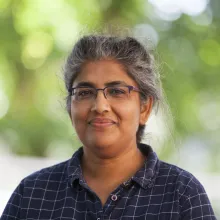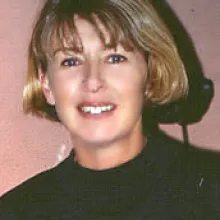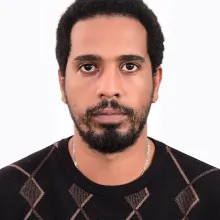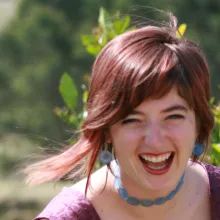
Humanitarian Health Research Initiative
The ANU Humanitarian Health Research Initiative (HHRI) exists to help those in greatest need.
About
The ANU Humanitarian Health Research Initiative (HHRI) exists to help those in greatest need. It is led by Professor Kamalini Lokuge, a former doctor and medical epidemiologist for Médecins Sans Frontières (MSF), the World Health Organisation and the International Committee of the Red Cross.
Kamalini knows that those who live the experience - mothers, children, health workers and teachers - are best placed to identify gaps and deliver solutions. Too often, their voices are ignored when aid is delivered, research undertaken, and policies created.
Their work gives a voice to those best placed to find, and with most to benefit from, a solution.
The team has extensive experience, in countries including Australia, Afghanistan, Darfur, Uganda, Nigeria, Myanmar, South Sudan, Zambia, the Democratic Republic of Congo, Guinea, Sierra Leone, Papua New Guinea (PNG), Sri Lanka and Indonesia.
Vision
Improving access to healthcare and wellbeing for all people.
Mission
Empowering communities with the capacity to shape and achieve goals for safe, quality, and sustainable healthcare and greater wellbeing.
Partnerships
Médecins Sans Frontières/Doctors Without Borders (MSF), the world’s leading independent organisation for medical humanitarian aid, is on a joint PhD program and has a range of operational research and evaluation projects.
University of Peradeniya researchers and a local NGO, the Peoples Policy Institute in post-conflict Sri Lanka to develop innovative solutions to the issue of domestic violence.
Support us
To make a gift to the Humanitarian Health Research Initiative and help those most in need, please follow this link.
Please contact Donor Relations on 02 6125 2670 or donor.relations@anu.edu.au if you require any assistance.














